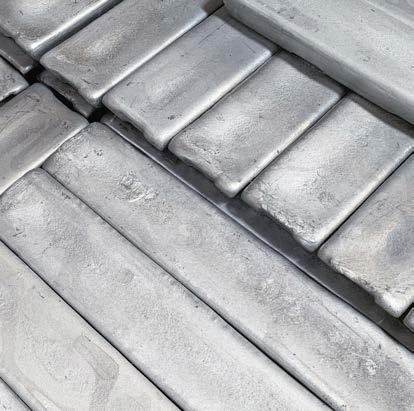
10 minute read
UK aluminium sustainability roadmap to 2050
As a lightweight and highly recyclable material, aluminium is a key contributor to the UK’s lowcarbon economy. Its role will continue to expand as industries contribute towards the Government’s green growth ambitions and 2050 net zero targets. From providing alternatives to single-use plastics to supporting more sustainable transport, aluminium is boosting recycling, driving the circular economy and helping reduce carbon emissions.
The aluminium sector generates £10 billion annually for the UK economy and employs more than 20,000 people nationwide. It plays a vital role in the supply chains of high-value sectors – aerospace, automotive, rail and construction – as well as mass markets for packaging.
AS A SECTOR, WE’RE ALWAYS LOOKING FOR WAYS TO ADD MORE VALUE TO PARTNERS, CUSTOMERS AND SOCIETY AS A WHOLE. SUSTAINABILITY IS AN ESSENTIAL PART OF THAT.
Here, we outline a roadmap for boosting sustainability within the UK aluminium sector focusing on 3 pillars – decarbonisation, sustainable sourcing and the circular economy. We look at ways in which those who process, trade and work with aluminium can harness sustainability as a competitive advantage, for the sector and for UK industry more widely. However, aluminium is a global sector with global supply chains. In addition to these UK-specific sustainability goals and actions, the Aluminium Federation (ALFED) will continue collaborating with European Aluminium, the International Aluminium Institute, the Aluminium Stewardship Initiative and other organisations worldwide, aligning our approach with worldwide efforts to boost sustainability across the value chain. ALUMINIUM: KEY TO THE UK’S LOW-CARBON ECONOMY
A VITAL ECONOMIC CONTRIBUTOR £10 BILLION
generated annually for UK economy from the aluminium sector
people employed by the aluminium sector nationwide
20,000+
HIGHLY RECYCLABLE 75%
95%
less energy required to produce recycled aluminium (compared with primary aluminium)
ENABLING SUSTAINABILITY ACROSS INDUSTRIES 8G OF CARBON EMISSIONS
UP TO 50% REDUCTION
saved per kilometre for each 100kg reduction in a car’s mass, thanks to aluminium-driven lightweighting
in a building’s energy consumption with intelligent façades incorporating aluminium systems
UP TO 40% REDUCTION
in the foil thickness of packaging without jeopardising content
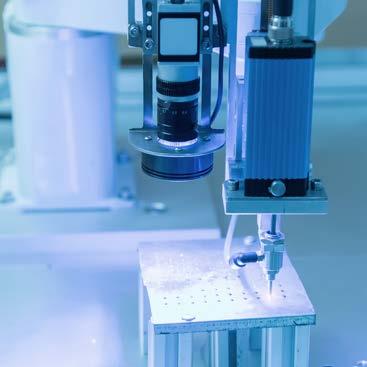
Source: European Aluminium, Vision 2050
DECARBONISATION GOALS ALFED’S GOAL IS TO SUPPORT THE SECTOR TO ACHIEVE NET ZERO BY 2050.
Although primary aluminium production is a carbon- and resource-intensive process, the emissions intensity depends on the electricity source used for electrolytic reduction during smelting. In the UK, there is minimal primary aluminium production. Nearly all primary aluminium is imported, and the minimal domestic production already uses hydroelectric power. As a result, the UK aluminium sector is already carbon and resource efficient. No hazardous waste is currently being sent to landfill. Drosses and slags are hazardous as they contain various metals impurities and salts. However, they are rendered non-hazardous because they are reduced to pure salts, which are used in melting furnaces, potash (used as fertiliser) and aluminium returned for recycling. Therefore, the UK aluminium sector can decarbonise in two major ways. The first way is by importing the lowest-carbon primary aluminium, either in ingot form or incorporated in semi-fabricated or finished products. The second way is for UK industry to maximise the use of end-of-life aluminium. This aluminium has the lowest available carbon and energy intensity. It also has the highest potential to become zero-carbon if the heating source for scrap melting can be from a clean fuel, such as green hydrogen, or electrified and fuelled by renewable electricity sources.
ACTIONS
• R&D acceleration Work with the UK Government and knowledge partners to develop policies and programmes that support the transformation of end-of-life aluminium into semi-fabricated and finished products in the UK. This will require investment in R&D to evolve additive manufacture, develop recycling-friendly alloys and design sensing and sorting systems that segregate alloys from mixed scrap. We will also support the development of high-performance alloys to optimise material utilisation across the widest possible spectrum of applications. • CapEx support Work with Government and knowledge partners to develop the financial support and tax breaks needed to enable investment in low-carbon, energy- and water-efficient, UK-based manufacturing facilities. This should focus on rolled and extruded products, as well as other forms that are currently imported. SUSTAINABLE SOURCING GOALS BREXIT AND THE CORONAVIRUS PANDEMIC HAVE GIVEN THE UK ALUMINIUM SECTOR A UNIQUE OPPORTUNITY TO RESTRUCTURE AND REBUILD KEY SUPPLY CHAINS.
It’s an opportunity to increase the focus on sustainably sourcing primary aluminium and semi-fabricated products the UK imports at present. The UK’s high-value manufacturing industry can secure a competitive advantage by having easy access to a UK-based sustainable supply chain, with reduced reliance on carbon-intensive imports and greater utilisation of UK endof-life scrap. We will help the aluminium sector capitalise on this opportunity by providing frameworks and support to simplify processes, foster collaboration across the value chain, close skills gaps and increase workforce diversity. Our efforts will have a major focus on SMEs to ensure it’s time- and cost-efficient for them to drive initiatives forward.
ACTIONS
• Traceability Support members with implementing best-practice traceability standards1 relating to environmental and social issues, for example building on the Aluminium Stewardship Initiative (ASI) Performance and Chain of Custody Standards and European Aluminium’s responsible sourcing toolkit for SMEs2 . • Domestic supply chain development Encourage ongoing development of the UK aluminium value chain, working with other trade associations like Make UK and the Society of Motor Manufacturers and Traders. For example, UK-based OEMs could reduce CO2 emissions by 1 million tonnes for every 100,000 tonnes of prime-based (new aluminium from ore) sheet replaced with domestic supplies3. At the same time, they can also reduce strategic supply chain risks. • Skills development Work with industry, universities and other knowledge partners to develop programmes that expand the UK’s skills base – and provide a sustainable talent pool for expanding domestic capabilities across the aluminium value chain.
• Diversity and inclusion Collaborate with knowledge partners and industry to foster diversity within the aluminium workforce, including boosting the proportion of women in the aluminium sector. We will also promote STEM careers to young people, helping develop programmes that broaden access to work experience and apprenticeships. • Social engagement Develop a best practice framework for driving CSR and voluntary initiatives that help members contribute to more socially conscious supply chains.
1 Aluminium Stewardship Initiative, Standards for the aluminium value chain. 2 European Aluminium, Responsible sourcing toolkit. 3 British Aluminium Consortium for Advanced Alloys, February 2021.
continued on page 23 >>



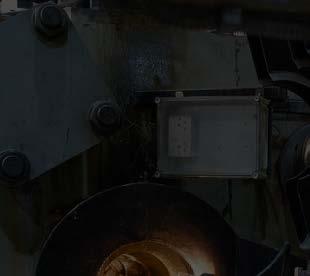
History Pride Excellence
The only UK owned aluminium extruder, providing an award-winning service to UK industries for over 30 years. Proud of our Corby based team of industry leading specialists, our multi-press operation, and our ability to problem solve, provide high-quality products and meet short lead times. Short lead times, with market defining customer satisfaction levels.
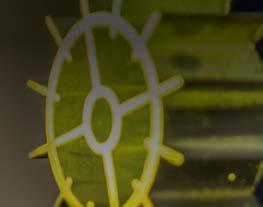

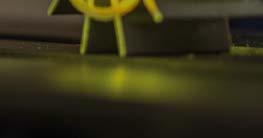
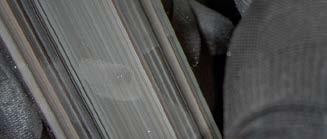
The possibilities are endless
CALL OUR SALES TEAM 01536 262 437 ï alishapes.co.uk
THE VOICE OF THE UK ALUMINIUM INDUSTRY
ALFED quar terly magazine offers you a great oppor tunity to promote your products and ser vices to key decision makers and influencers within the aluminium industr y in the UK.

SCHEDULE: Issue 11 – available on 10 December 2021

ALUMINIUMNEWS T H E V O I C E O F T H E U K A L U M I N I U M I N D U S T R Y ISSUE 3 DECEMBER 2019
ALUMINIUMNEWS T H E V O I C E O F T H E U K A L U M I N I U M I N D U S T R Y ISSUE 4 MARCH 2020
ALUMINIUMNEWS T H E V O I C E O F T H E U K A L U M I N I U M I N D U S T R Y ISSUE 5 JULY 2020
ALFED ANNUAL DINNER ALFED HISTORY
The highlight of the ALFED calendar More than a fifty year story
4 14 LONDON METAL EXCHANGE UPDATE
Recent LME developments and initiatives impacting the aluminium industry 17 DESIGNING BUILDINGS
An Aluminium Pioneer
18 RECYCLING
ALFED Aluminium Recycling Industry Workshop
28
ALFED ANNUAL DINNER & BUSINESS BRIEFING ALFED TRAINING COURSES ELECTRIC VEHICLES OFFER NEW OPPORTUNITIES FOR ALUMINIUM PRODUCERS UCL @ HEREEAST: A FUN-PLACE FOR FABRICATION DESIGN AND RESEARCH ALFED: UK/EU TRADE NEGOTIATIONS POSITION PAPER
10 12 21
22
36
COVID-19 JOURNEY ALFED TRAINING ACADEMY
ARE YOU SECR COMPLIANT? PHOSPHATE BONDED MONOLITHICS ANODISATION OF ALUMINIUM ALUMINIUMNEWS T H E V O I C E O F T H E U K A L U M I N I U M I N D U S T R YALUMINIUM NEWS T H E V O I C E O F T H E U K A L U M I N I U M I N D U S T R Y ISSUE 10 SEPTEMBER 2021
ISSUE 9 MAY 2021
6 12 19 20
24

For more information please contact: Kirsi Lintula, Editor e: klintula@alfed.org.uk m: 07768 566 437
ALFED HOUSE OF LORDS LUNCH 20 JULY 2021
5 ALFED ANNUAL DINNER/ASA DUTCH PARTY & BUSINESS BRIEFING 25 NOVEMBER 2021 BENEFITS OF WELDING STRUCTURAL ALUMINIUM WITH ADJUSTABLE MODE BEAM FIBER LASERS ALFED HEALTH, SAFETY & ENVIRONMENT CONFERENCE 5 OCTOBER 2021 BECOMING A FULLY CIRCULAR AND CARBON NEUTRAL BUSINESS BY 2050
6
14
16
ALFED ANNUAL DINNER/ASA DUTCH PARTY & BUSINESS BRIEFING WELCOME TO OUR NEW MEMBERS
19
CULTIVATING A DIGITAL DIALOGUE FOR CASTING OXY-FUEL COMBUSTION FOR DECARBONISATION SUSTAINABILITY ROADMAP
4 6 -7 12 16 20
continued from page 21 >> CIRCULAR ECONOMY GOALS 75% OF ALL ALUMINIUM EVER PRODUCED IS STILL IN USE IN SOME FORM, AND IT TAKES 95% LESS ENERGY TO PRODUCE RECYCLED ALUMINIUM THAN PRIMARY ALUMINIUM4 .
In fact, by automating sorting processes, aluminium’s quality can even improve during recycling. Aluminium therefore has a unique role to play in the circular economy. The UK is a global leader when it comes to aluminium recycling, generating an estimated 1.4 million tonnes of aluminium scrap per year5. 500,000 tonnes of that scrap is currently exported. We will support the sector – and the supply chains it’s part of – to leverage the benefits of recycled aluminium, helping achieve a 50,000-tonne annual reduction in scrap exports. By 2050, we aim to achieve a 90% increase in the domestic use of recycled aluminium. ACTIONS
• Closed-loop supply chain development
Work with the sector and knowledge partners to drive alloy innovation and grow domestic capacity in re-processing and semi-finishing.
Given that aluminium production, consumption and recycling is an ecosystem, this is essential to increasing scrap re-utilisation. • Whole-life design innovation Collaborate with knowledge partners and application-specific stakeholders (packaging, construction, automotive, aerospace and rail industries) to embed aluminium recycling into the whole-life design process. This includes looking at how to replace other materials that are more difficult to recycle with aluminium, thereby increasing product recyclability. It also includes making it easier to dismantle and sort parts for more efficient recycling, as well as designing ways of extending life through upgrades and re-use. • National recycling strategy Support Government in developing a national reuse, remanufacturing and recycling strategy to reduce aluminium scrap exports and boost domestic use of recycled aluminium. This includes developing and supporting community initiatives to promote recycling and reduce waste going to landfill.
4 European Aluminium, Vision 2050. 5 Excluding packaging scrap.










